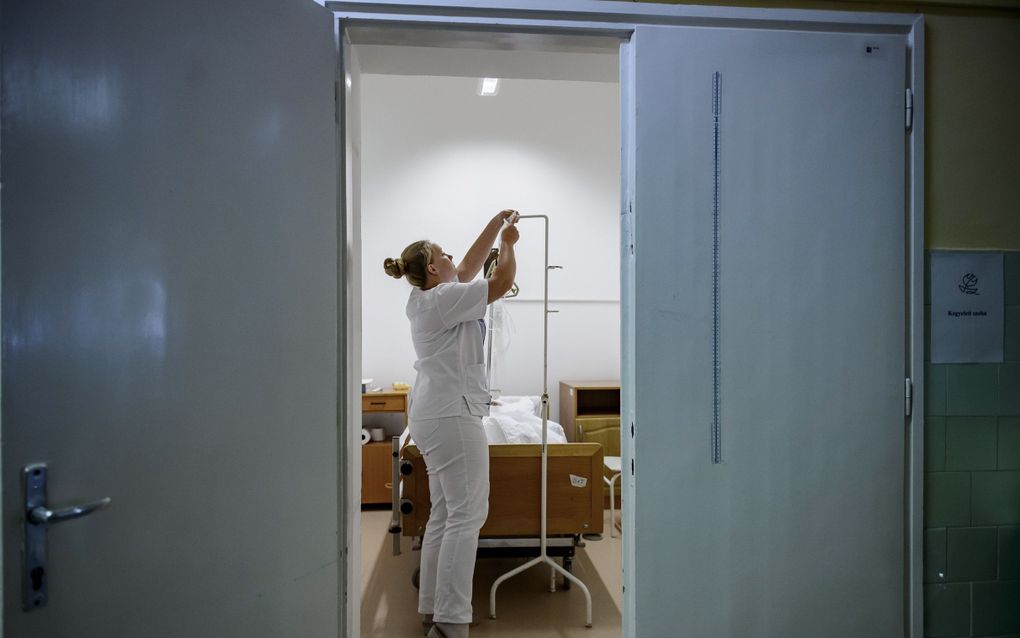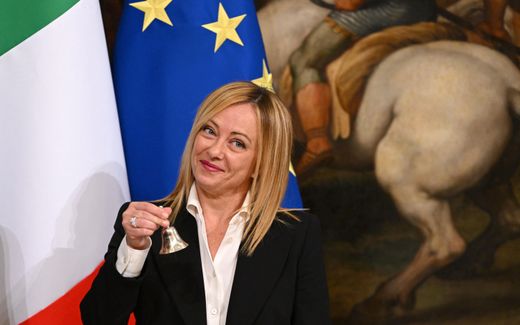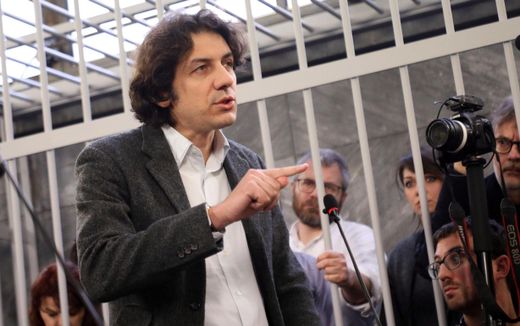Tuscany opposes Meloni by legalising assisted death
18-02-2025
Southern Europe
Aart Heering, RD

A nurse takes care of a patient in a hospice. Photo EPA, Peter Komka
Southern Europe
Last week, the regional government of Tuscany passed a law that allows assisted suicide under very strict conditions. Tuscany is thus the first Italian region to respond to an urgent request from the constitutional court.
Stay up to date with Christian news in Europe? Sign up for CNE's newsletter.
Italy's highest court has repeatedly called on parliament in vain to formulate a national law on euthanasia. Prime Minister Giorgia Meloni's government is still considering whether to file an appeal against the Tuscan law.
Euthanasia has been under discussion in the Italian parliament since 1984 when the first bill on the issue was submitted. Three-quarters of Italians are now in favour of legal regulation, but mainly due to pressure from the Roman Catholic Church, a parliamentary majority has never been obtained. The debate flared up in 2017 when human rights activist Marco Cappato smuggled a patient who had been paralysed and blinded in an accident across the border to a Swiss euthanasia clinic.
Under Italian law, this was considered "assisted suicide", which carries a prison sentence of five to twelve years. Cappato turned himself in to the police to provoke a trial, which eventually ended up in the constitutional court. The court did not condemn Cappato, but asked the Italian parliament to make haste with a draft for a euthanasia law.
Recommendations
When that failed, the court drafted its own ruling two years later. In it, assisted suicide is not punishable if four conditions are met: incurable illness, unbearable suffering, dependence on medical equipment, and free and conscious choice of the patient.
Despite a renewed appeal from the court in 2024, end-of-life care is still a loophole in Italian national legislation. Tuscany, which as a region has far-reaching administrative powers, has now filled this gap with a regional law that literally adopts the court's recommendations.
In addition, a committee has been formed to decide on each case involving assisted dying. This committee consists of a palliative doctor, a psychiatrist, an anaesthetist, a psychologist, a general practitioner and a nurse.
Battle
Last week, the left-wing Tuscan governor Eugenio Giani called on other regions to follow his example. His right-wing colleague from the Veneto region, Luca Zaia, supported him in this.
The government is dominated by opposers to legalisation of assisted suicide, but they are hesitant to challenge the regional law. That could lead to a jurisdictional battle, in which the same constitutional court that inspired the text of the Tuscan law would act as judge.
This article was translated by CNE.news and published by the Dutch daily Reformatorisch Dagblad on February 13, 2025
Related Articles







